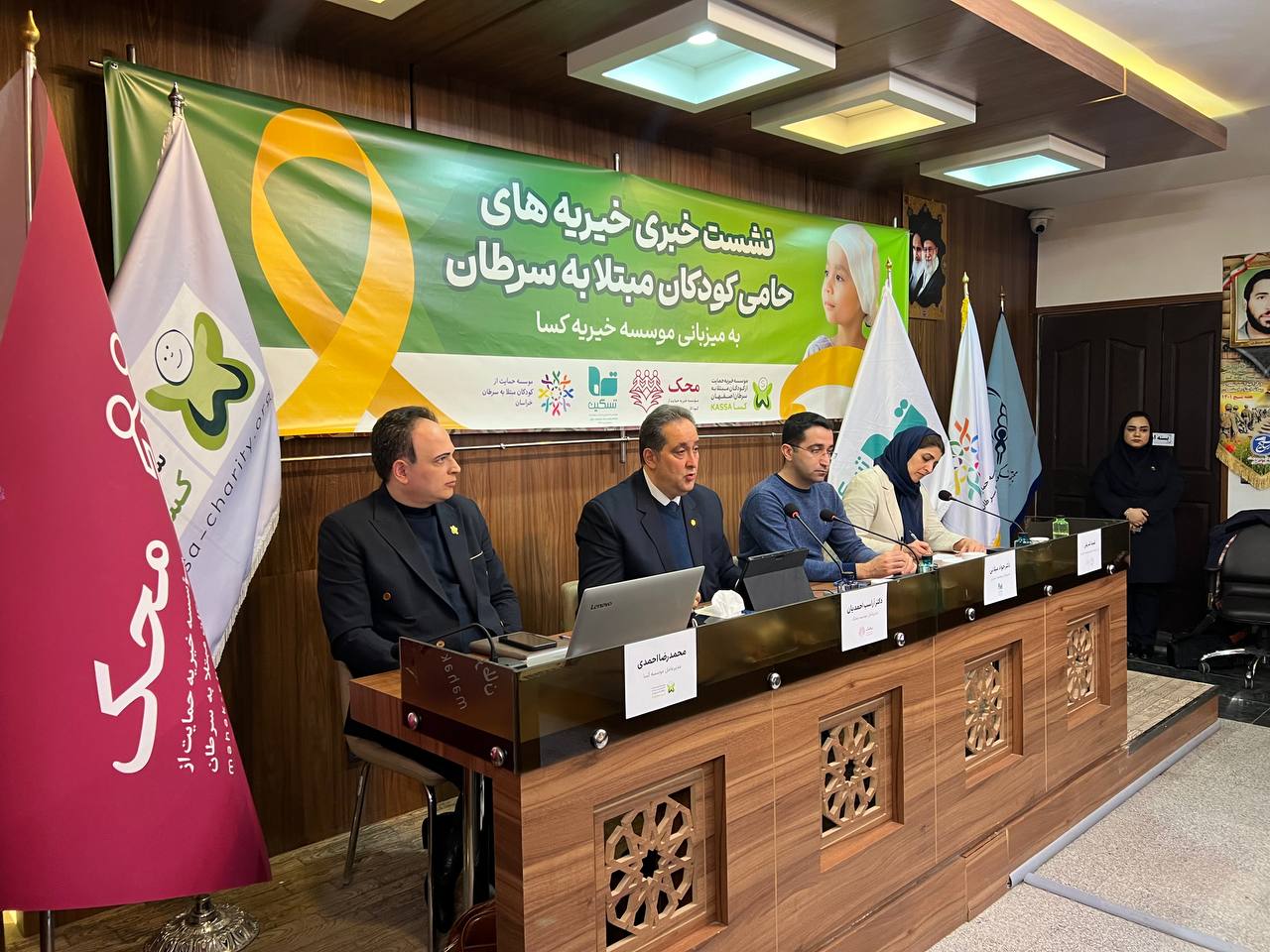
This Time Press Conference at Isfahan: Challenges and Triumphs in Childhood Cancer Care in Iran
- 18 March 25
- 382 revirew
- 0 comment
During January a press conference took place at Isfahan with the presence of CEOs of MAHAK Charity Institute, KASA Charity, TASKIN Charity, and Khorasan Charity.
Mohammad Reza Ahmadi, CEO of KASA Charity and host of the event, began the conference state: Iran Cancer National Organizations of Charities compels all of its subdivisions to share knowledge with other similar establishments across the country. This in turn leads to equal and easy access for children with cancer and their families not only in the capital, but also in all provinces of the country. This strategy not only provides families with peace of mind during their child’s treatment but also helps prevent them from needing to relocate to other cities for ongoing care.
Dr. Arasb Ahmadian, CEO of MAHAK, expressed gratitude to KASA for their hospitality and shared: MAHAK currently operates in 41 public university hospitals across Iran and provides support to children in any hospital with active pediatric hematology and oncology departments. Up to date, MAHAK has supported over 45,000 children with cancer, resulting in 18,000 recoveries over its 33 years of operation, while currently aiding 12,500 children receiving medical and supportive services.
Pointing out the most challenging topic in pediatric cancer treatment to be the high cost of medications, Dr. Ahmadian acknowledged the role of Ministry of Health in facilitating the importation of specialized medications to ensure that advanced treatments are available locally, allowing children to avoid traveling abroad for care. However, considering the fact any child under 18 with a confirmed cancer diagnosis receiving treatment in a public hospital is fully supported by MAHAK and MAHAK entirely covers the medication costs, Dr. Ahmadian raised concerns about the inconsistent availability of special kinds of medications, which can sometimes lead to shortages.
He remarked that organizations advocacy efforts are not just aimed at the public. They are also aimed at relevant subdivisions of Ministry of Health, Treatment and Medical Education to ensure that these crucial medications are included in the national formulary and covered by insurance companies. Based on preliminary estimates from the first nine months of the year, MAHAK is now expecting a 65% raise in expenses during 2025 compared to 2024.
Moreover, Dr. Ahmadian emphasized the importance of early diagnosis in childhood cancer treatment and said: Timely detection is vital and it has been two years now that MAHAK has been entirely focused on early diagnosis, its significance, and promoting it, which ultimately results in a less painful, less costly and more effective treatment for pediatric cancer.
He further noted that WHO shows an 80% of survival rate for pediatric cancer in high-income countries. While this number shifts to 20% in low and middle-income countries, like Iran. However, due to MAHAK three decades of work, support and dedication, now pediatric cancer survival rate shows 40% in Iran. This doubling is a greatly significant achievement.
Next speaker was CEO of TASKIN Charity, Javad Milani. He talked about two new generations of medications that are expected to emerge in the next decade. One is immunotherapy, which utilizes the body’s immune system, and the other is targeted therapy, known for its high costs due to extensive research and development.
Following that Milani mentioned pros and cons for this incident: unlike traditional treatments, these medicines are associated with fewer side effects for patients. They also can identify cancer cell proteins and target only those cells, leaving healthy tissues unharmed.
On the other hand, these new innovative medicines are significantly expensive. One vial of these medications can cost up to $2,500, resulting in a single cancer treatment prescription to reach around $75,000.
Last but not least, Shima Sharifi, CEO of Khorasan Charity, shared some of their actions and initiatives and mentioned: having Afghanistan as neighbor, Khorasan Charity provides support to a number of Afghan patients, as well. According to her, if the Afghan patients have an asylum card, then Khorasan Charity covers their health insurance expenses and facilitates their treatment.
